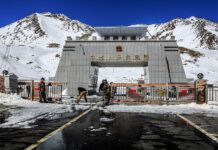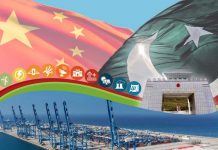
TOKYO: The World Steel Association on Tuesday doubled its 2018 and 2019 forecasts for growth in global demand for the material used in everything from cars to construction but said that trade tensions were clouding the outlook for the sector.
The caution over trade from a body that represents 85 percent of global steel will stoke concerns that the tit-for-tat tariff dispute between the United States and China is undermining global growth, especially after the International Monetary Fund last week downgraded its economic forecasts.
“Global steel demand faces uncertainty from tensions in the global economic environment,” the association, commonly known as worldsteel, said in a statement issued at its annual general assembly, this year held in Tokyo.
The steel industry, worth about $900 billion a year, is seen as a gauge of world economic health. Worldsteel represents more than 160 steelmakers.
Steel demand is expected to rise 1.4 percent next year to 1.681 billion tonnes, worldsteel said. That is double the 0.7 percent growth it forecast in April.
Still, that would mark a slowdown from the 3.9 percent growth in appetite expected for 2018, to 1.658 billion tonnes, driven by the world’s biggest consumer, China. In April, worldsteel said it expected 2018 demand to climb 1.8 percent from last year.
EYES ON CHINA
Steel use in China is expected to rise 6 percent this year to 781 million tonnes and be flat in 2019, the body said.
“China steel demand-growth is expected to decelerate in the absence of stimulus measures,” Worldsteel said.
Consultancy CRU estimates that gross domestic product growth in China, which produces and consumes half the world’s steel, could drop by up to 1 percentage point if Sino-U.S. trade tensions hurt investor confidence.
China has been eliminating excess and outdated steel capacity, including more than 100 million tonnes of illegal induction furnaces in 2017, in a bid to pare its bloated steel sector.
The IMF last week cut its global economic growth forecasts for 2018 and 2019, saying that trade policy tensions and the imposition of import tariffs were taking a toll on commerce while emerging markets struggle with tighter financial conditions and capital outflows.






















